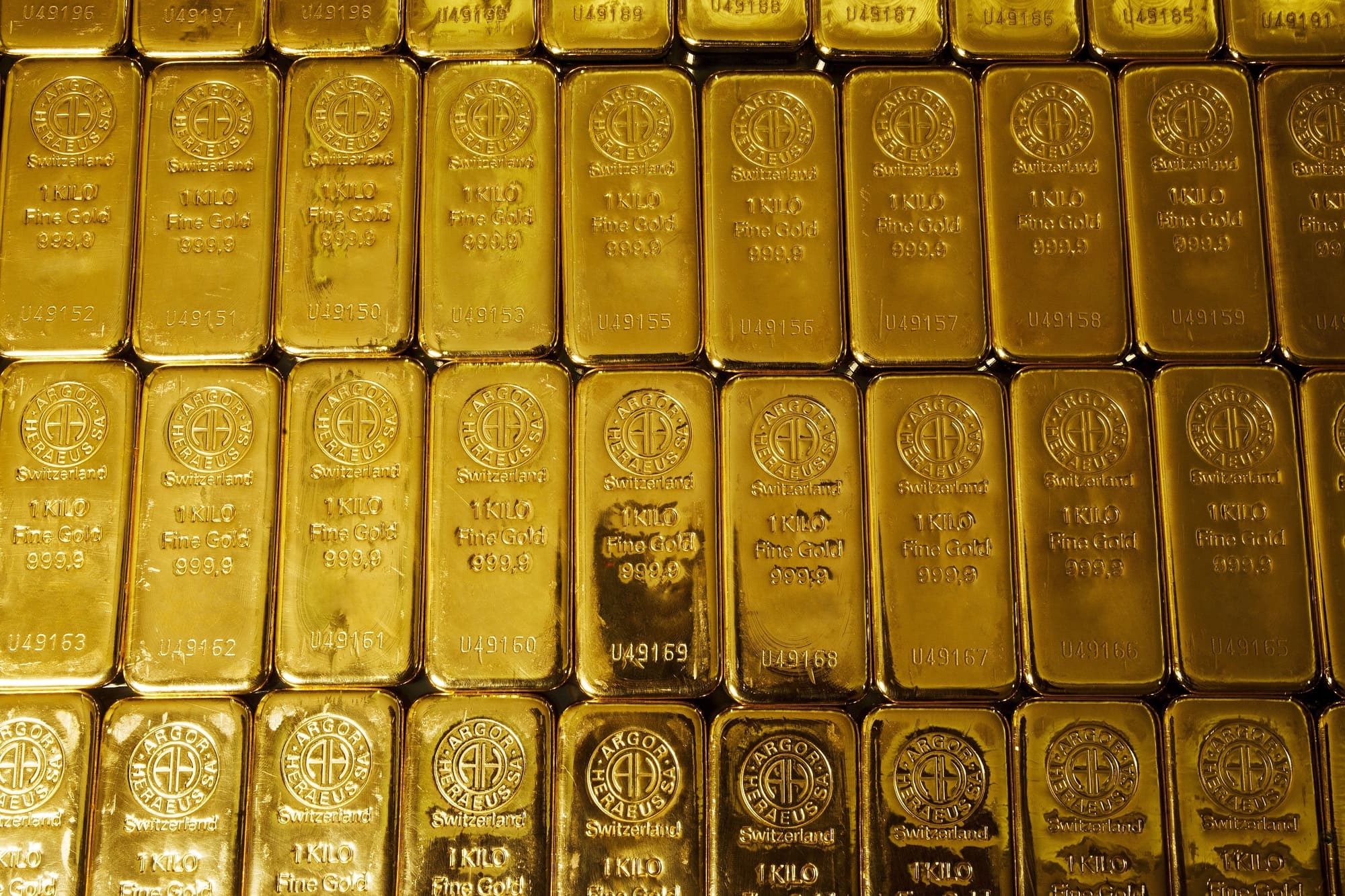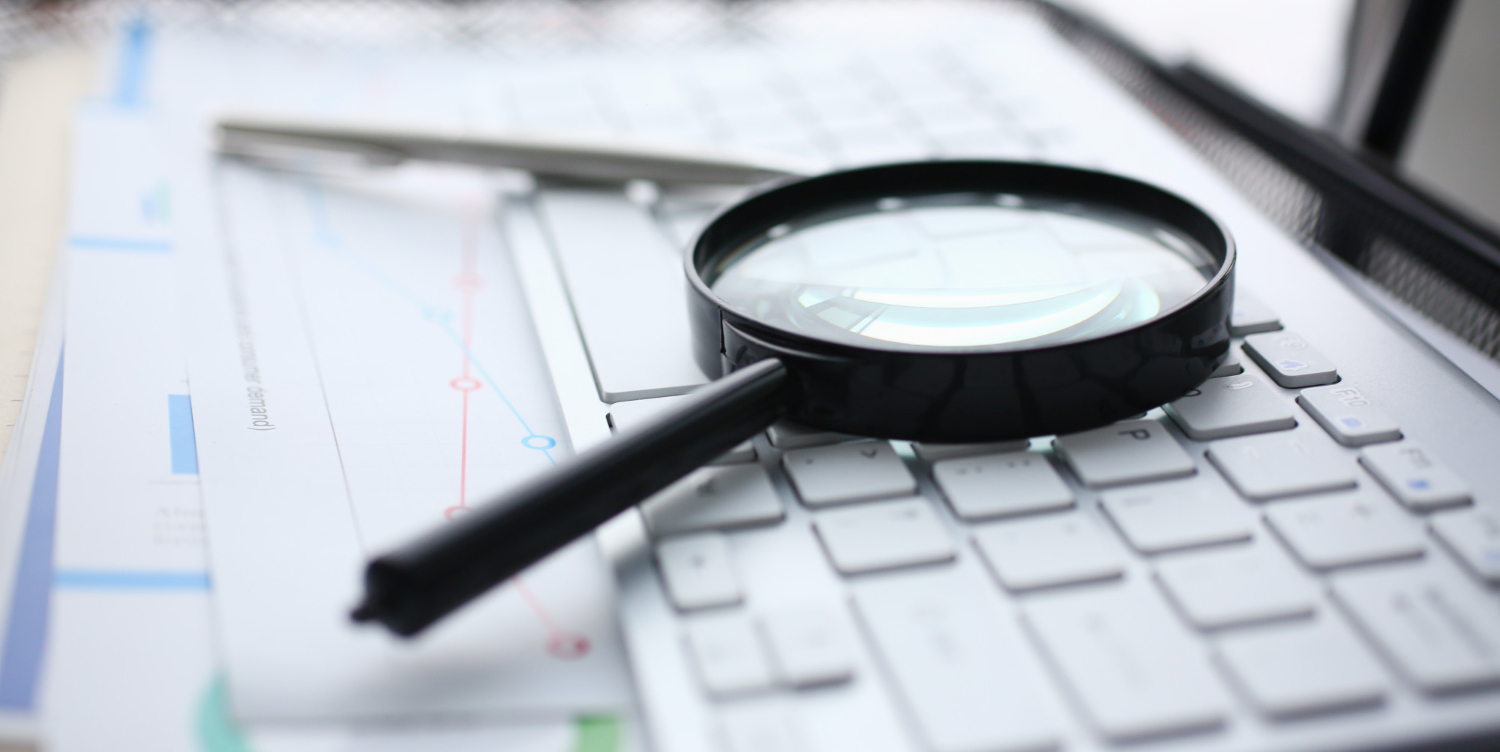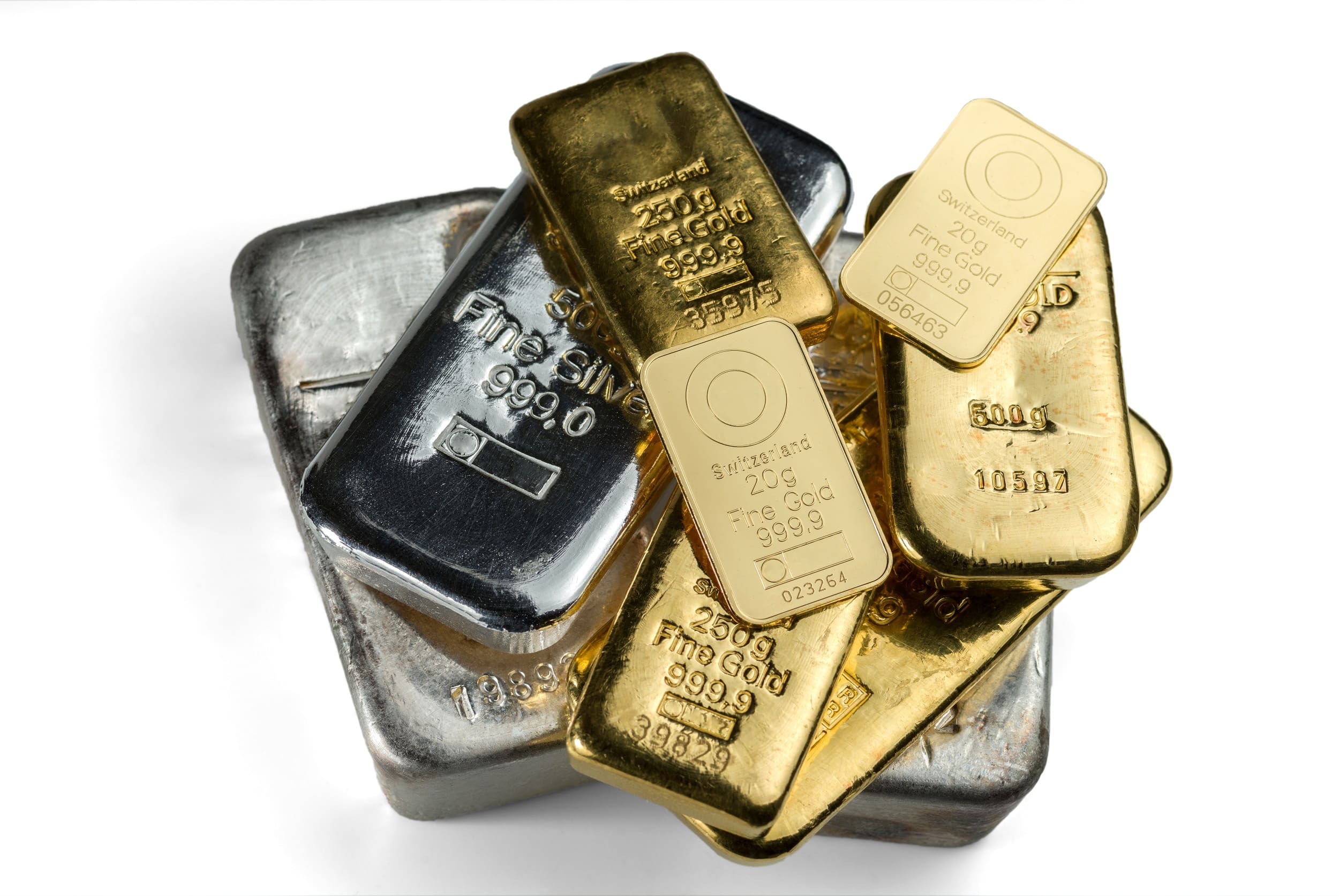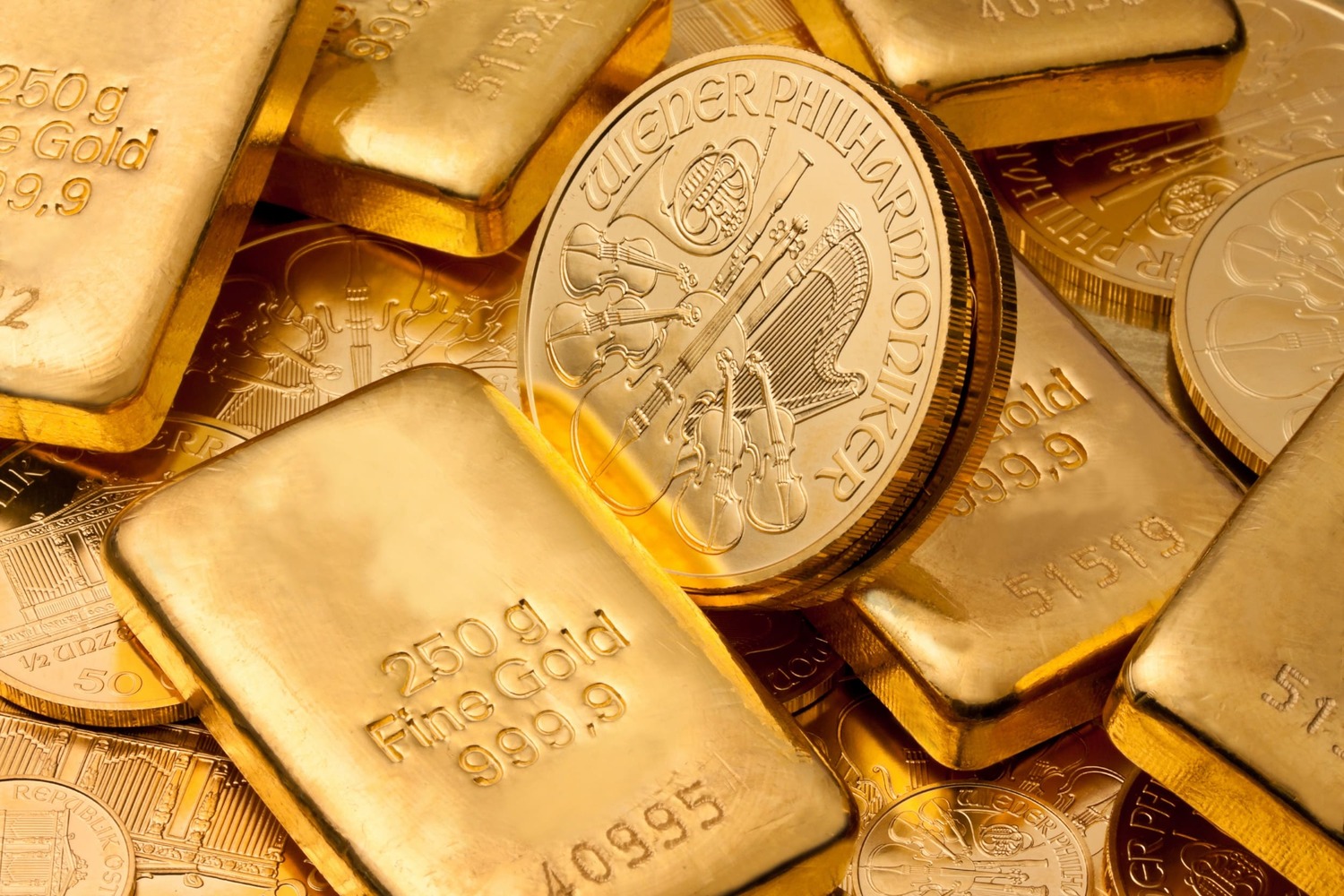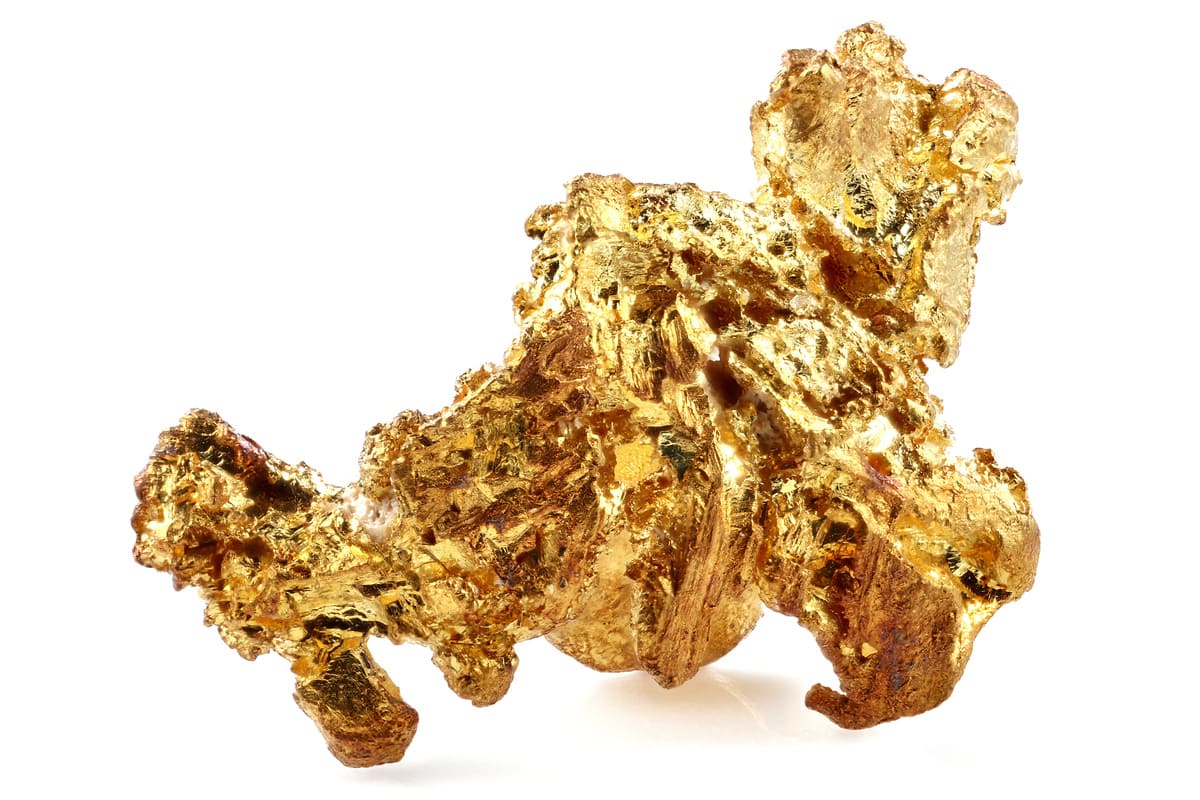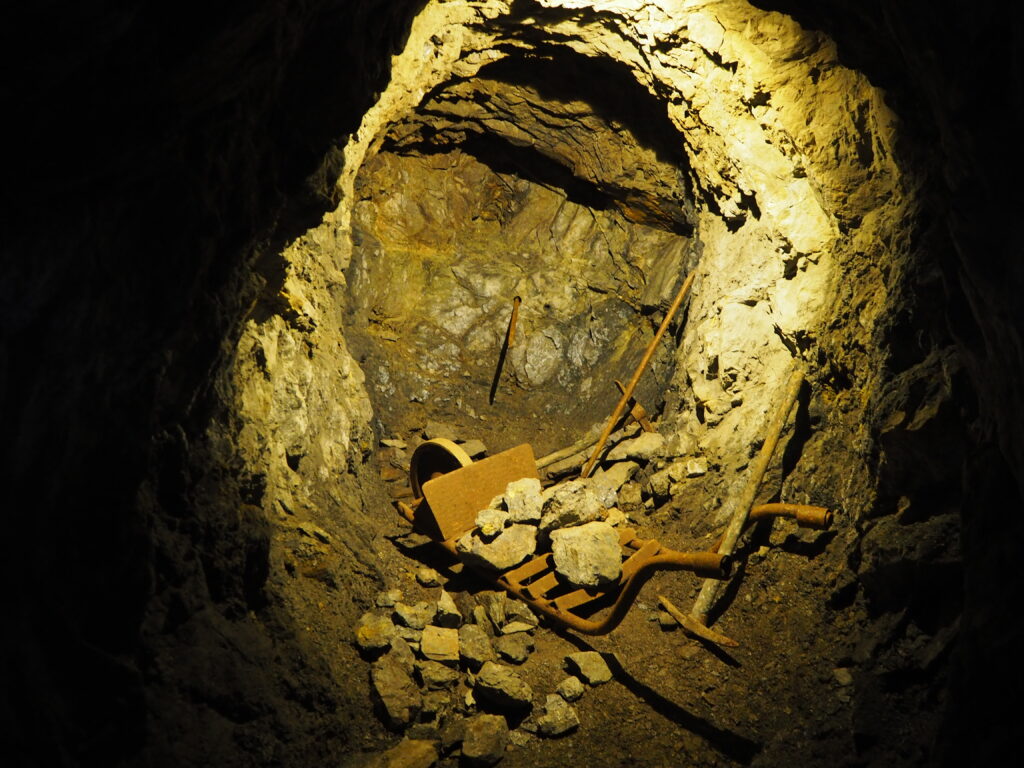Dealer precious metal deposits – storage options
Additional information > Investment forms for gold, silver, platinum and palladium > Dealer precious metal deposits – storage options
It’s rarely possible to store precious metals at home – especially where values exceed a few thousand francs. In addition to a bank safe deposit box, investors can choose to open a precious metal depository or deposit with a broker, whereby physical gold and silver is stored directly with the provider. Yet what initially seems sensible may prove disadvantageous on closer inspection.
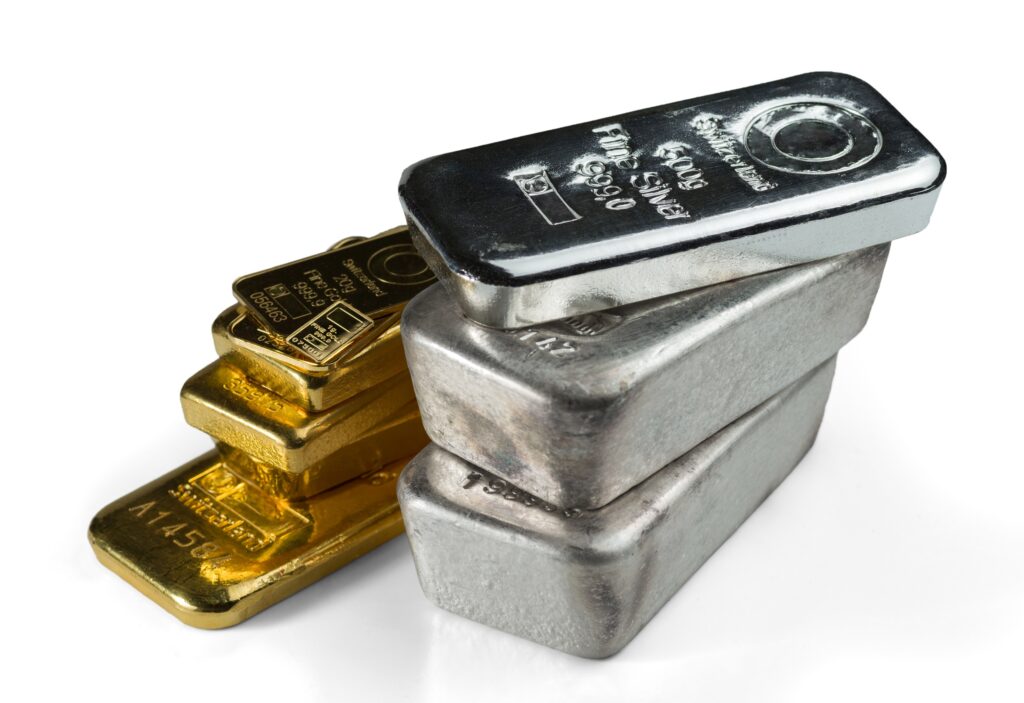
© vladk213 - stock.adobe.com
A precious metal deposit facility, often called a gold deposit or gold depot, is another method of purchasing physical gold, platinum or palladium. The essential difference here is that investors do not take home the coins or bars they have just purchased, but leave them with the broker instead. At the broker’s premises, the precious metals are then stored inside their in-house vaults. The staff takes care of all the processing, so once the initial purchase transaction is complete, the buyer will not see his property again. And where they operate a direct sales outlet, this kind of purchase and storage option is now quite commonly offered by refineries too. In essence, this means that these providers of precious metal deposits act independently of banks, which offers some advantage over traditional bank safe deposit boxes.
NB: Depending on the terms of the contract, these providers of precious metal deposits may invest assets on behalf of their customers. If so, they may well be deemed to act as financial intermediaries. As such, they may then be required to adhere to statutory reporting obligations – just like any bank.
Storage arrangements and associated costs of a precious metal deposit
In basic terms, a precious metal deposit is similar to any other purchase and private storage of gold or silver. However, deposit facilities generally operate under collective storage arrangements whereby your own investment holding is stored together with precious metals, and perhaps other commodities, owned by other customers. When purchased items are later withdrawn, each customer will receive back items which are of the same type. However, these will not be their original purchased items. From a legal perspective, a customer can still claim property rights because the bars or coins are private property. In effect, this means your precious metals will not be deemed part of any bankruptcy estate should the provider later become insolvent, and the goods cannot be legally confiscated by any of that provider’s creditors.
Investors who are interested in a precious metal deposit should note that the costs are usually higher than the charges for an equivalent safe deposit box. Annual fees are usually calculated based on the value of stored items. You should expect fees charged on a sliding scale according to the type of metal. Many options will include minimum storage fees.
Good to know: The annual fee for a precious metal deposit may, or may not, include an insurance coverage which goes towards an insurance the provider arranges to cover the value of the entire contents of the vault. In the event of an insurance claim, customers with goods in store will receive a proportionate share of the total sum insured – calculated on the value of their own stored goods.
Can holdings kept in a precious metal deposit be merged?
Before opening any precious metal deposit, investors who already own amounts of gold or silver should clarify whether their old and new holdings can be merged. Not every provider is prepared to offer this option, because they may have decided the necessary authenticity checks would prove to be too time-consuming. Where such a service is offered, it can be assumed it will only apply to the more common bullion coins. For example, coins such as the Australian Kangaroo, Krugerrand, Maple Leaf and Vienna Philharmonic will be accepted in their different metal versions. The same applies to bullion bars, which must all come from certified manufacturers who have an LBMA certification provided by the London Bullion Market Association.
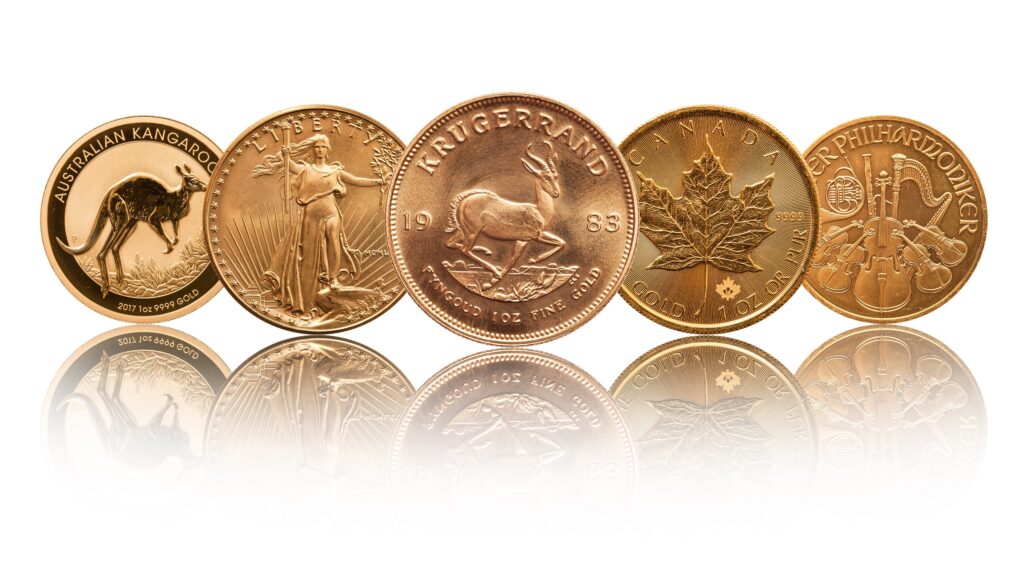
© Matt Light - stock.adobe.com
If such a merger is rejected, this amounts to a binding obligation to use a certain broker, because in such circumstances it is simply not possible to purchase precious metals from another provider and arrange to store them all in the same deposit. The maintenance of several precious metal deposit accounts with different brokers or direct sales outlets could prove rather uneconomic, because there will be additional fees to pay beyond the pure storage costs alone – for instance, charges for each storage and withdrawal, maintenance of inventory lists, etc.
Opening a precious metal deposit account
Before buying any bars or coins for the first time, investors must first conclude a contract with the provider to open a precious metal deposit facility. Once the terms and conditions have been clarified and agreed, the customer can then use the deposit. In addition, investors can purchase gold, silver or other white metals direct from the provider of the deposit facility.
A precious metal deposit can be topped up at any time via acquisitions. Investors do not have to appear in person at the premises when purchasing additional coins or bars. These can also be purchased by telephone or online and then automatically added to the customer’s existing deposit. These precious metal can also be sold again later in the same way – by selling back to the broker, for example.
Deposit withdrawals can also be arranged. Your precious metals can be collected personally or delivered to you via a specialist transport facility for valuables. Withdrawals may be necessary if a precious metal depository is to be closed, or if parts of the inventory are to be relocated or sold off externally.
The advantages of allocated & segregated storage compared to collective storage
Precious metal deposits offer many advantages over bank safe deposit boxes, one of which certainly includes a storage option with no initial transport costs. However, precious metal storage in Switzerland represents an attractive alternative to these two systems. As a private storage company, Swiss Gold Safe offers international clients convenient allocated & segregated storage for their valuables. Regardless of the type of product or the precious metal involved, coins or bars can be stored as required, starting from an annual rate of CHF 1,200, with standard insurance cover already included in the storage fee.
Private storage at Swiss Gold Safe not only enables bank-independent storage , it also sets no minimum purchase and has no broker commitments. This means investors can buy from the precious metal broker of their choice. Furthermore, Swiss Gold Safe is not subject to any reporting obligations or inspections by state institutions. Physical precious metals are housed in modern high-security systems where, as a matter of principle, they remain the property of the client. Allocated & segregated storage means that individual client portfolios are never stored among holdings belonging to others. This ensures investors will always receive back the exact same products that were put into storage – a significant advantage when compared to collective storage arrangements in a precious metal deposit. In addition, no VAT is payable on silver or other white metals.
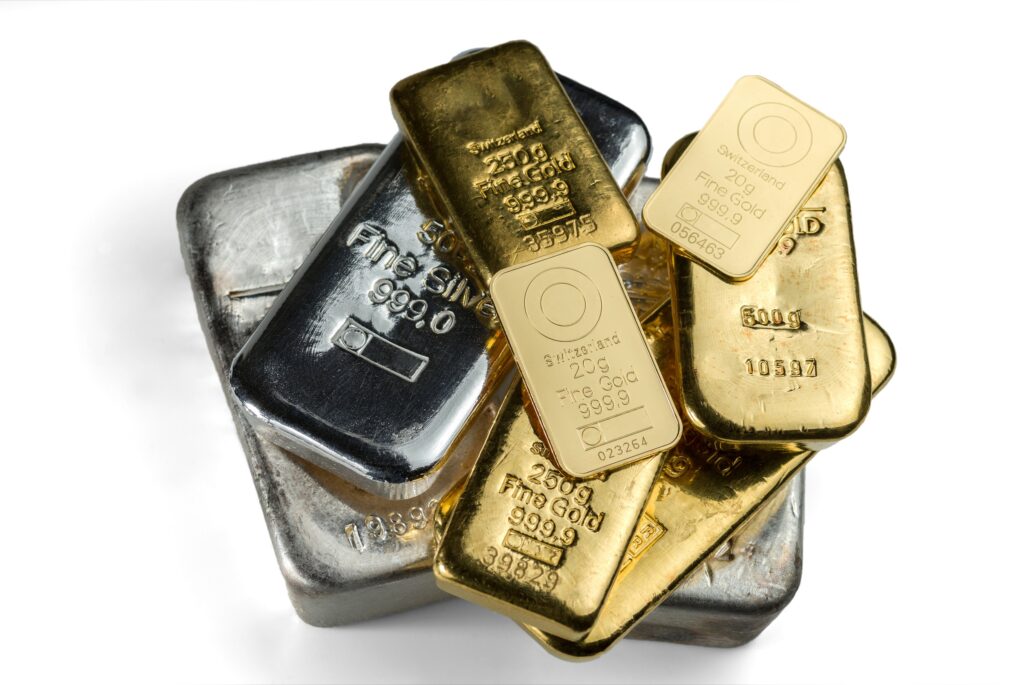
© vladk213 - stock.adobe.com
Swiss Gold Safe also offers a convenient storage and retrieval service. Investors can expand or sell their holdings at any time without having to be there in person. For example, further investment goods can be purchased from local precious metal brokers who will deliver them direct to the storage facility, where Swiss Gold Safe will take care of the rest. We recommend using our partner, Echtgeld AG, for your precious metal trading.
- Learn more about the advantages of allocated & segregated storage compared to collective storage here.
Personal safe deposit boxes in Switzerland or Liechtenstein
For those investors who prefer to manage their precious metals or other valuables personally, we recommend Swiss Gold Safe private safe deposit boxes in Switzerland or Liechtenstein . Clients can choose between different sizes, and there are options available without weight restrictions. Safe deposit boxes are charged at an annual rental, starting from 511.60 Swiss francs. This includes standard insurance cover and facilities can be adapted to meet custom specifications at any time. Precious metals and other valuables are stored securely and discreetly in an environment which is entirely independent of the banking system.
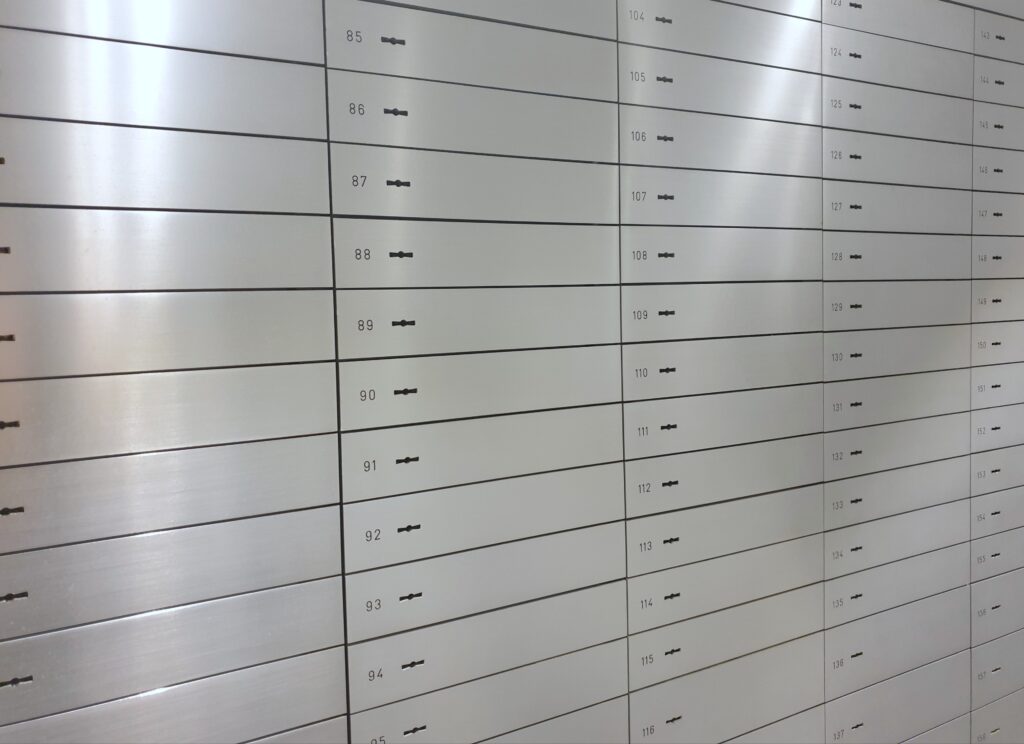
Useful information about precious metal deposits at a glance:
- Precious metal deposits are offered by specialist brokers or direct sales outlets.
- Investors acquire physical gold or silver, which is kept in the provider’s vault under collective storage arrangements.
- The annual fees are often much higher when compared to bank safe deposit boxes.
- Only common coins or bars are accepted.
- Swiss Gold Safe provides alternative allocated & segregated storage with bank-independent deposit facilities and safe deposit boxes in Switzerland or Liechtenstein.


